Ash dieback is just the start of killer plagues threatening Britain’s trees — George Monbiot
George Monbiot
As Dutch elm disease spread across Britain in the 1970s, the country fell into mourning. When the sentinel trees that framed our horizons were felled, their loss was a constant topic of sad and angry conversation. Today, just a few years into the equally devastating ash dieback epidemic, and as the first great trees are toppled, most of us appear to have forgotten all about it. I’ve travelled around much of Britain this summer, and seen the disease almost everywhere. A survey published this spring found infected trees across roughly three-quarters of England and Wales: the spread has been as rapid and devastating as ecologists predicted. But in this age of hypernormalisation, only a few people still seem to care. Ash to ashes: our memories wither as quickly as the trees.
And almost nothing has been learned. Our disease prevention rules, whose scope is restricted by the European Union and the World Trade Organization, and whose enforcement is restricted by the British government’s austerity, do little to prevent similar plagues afflicting our remaining trees. Several deadly pathogens are marching across Europe. While it is hard to prevent some of these plagues from spreading across land, there is a simple measure that would stop most of them from spreading across water: a ban on the import of all live plants except those grown from tissue cultures, in sterile conditions.
But bans are more or less banned. Nothing must be allowed to obstruct free trade. Instead, the world’s governments rely on hand wringing. Take, for example, a lethal plague called Xylella fastidiosa, which is ravaging olive groves in Italy and threatens a remarkable variety of trees and shrubs, including oak, sycamore, plane and cherry. The system for preventing its spread depends on inspections of random consignments of known host plants, and a passport scheme to ensure they aren’t imported from infected areas. This system is likely to be useless. The EU keeps a list of plants that can carry Xylella. It has been updated 12 times in four years, as new carriers emerge. No one knows how many more host species there might be. Visual inspections won’t reveal plants that carry the disease without symptoms. Random sampling won’t protect us from a plague that can be introduced by a single plant.
Nor do we know whether Xylella is the most urgent risk to our remaining trees, or whether an entirely new contagion will hit them instead. Many plant pathogens evolve at extraordinary speed, jump unexpectedly from one host to another, suddenly hybridise with each other, and behave in radically different ways in different environments. A system that regulates only known risks is bound to fail.
Even in economic terms, the live plant trade is senseless. Ash dieback alone, according to a paper in Current Biology, will cost this country around £15bn. But the UK’s import and export of all live plants amounts to £300m a year – 2% of the costs of this disease. The paper estimates that another 47 major tree pests and diseases now threaten to arrive in Britain, and these are just the known plagues. In ecological terms, this legislative failure is a total disaster. For the sake of deregulatory machismo, we face the prospect of tree species everywhere eventually meeting their deadly pathogens. Where logging and climate breakdown have so far failed to eliminate the world’s forests, imported diseases threaten to complete the job.
What will come next? Will our beech trees succumb to Phytophthora kernoviae, a disease that appears to have been imported to Cornwall on infected shrubs from New Zealand? Will Sitka spruce, on which commercial forestry in this country relies to an extraordinary extent, be hammered by the larger eight-toothed spruce bark beetle, found for the first time this year in a Kent woodland? Will it be hit by another marvellously named plague, Neonectria fuckeliana? Or by something else entirely? As the trade in live plants reaches almost every corner of the Earth, nothing and nowhere is safe.
Just as we need a precautionary approach, every lid is being ripped off, every barrier smashed, facilitating trade in everything, including pathogens. In response to a parliamentary question about Xylella, the environment minister, Thérèse Coffey, claimed that Brexit creates an opportunity to introduce “stricter biosecurity measures”. It does, but will it be used? Given that, for the monomaniacs who now run this country, the main purpose of leaving the EU is to escape its public protections, the chances of Brexit leading to stricter regulation of plant imports seem remote. Never mind that this trade makes neither ecological nor economic sense. Our government, like many others, favours a global trade regime that places the free movement of goods above all other values (while imposing ever tighter restrictions on the free movement of people).
There’s nothing good about ash dieback, but there is one useful thing that could be done: wherever possible, leave the dead trees to stand. There is more life in a dead tree than in a living tree: around 2,000 animal species in the UK rely on dead or dying wood for their survival. But (except in politics) there’s a dearth of dead wood in this country. Many species, such as the lesser spotted woodpecker, the pied flycatcher and the stag beetle, are severely restricted by the shortage of decay, caused by our tidy-minded forestry.
And there’s another reason to let the dead giants stand: as memorials to the repeated failures of government. Let us remember our losses, and learn from them.

George Monbiot
George Monbiot is a Guardian columnist and the author of Feral, The Age of Consent and Out of the Wreckage: a New Politics for an Age of Crisis
"I had an unhappy time at university, and I now regret having gone to Oxford, even though the zoology course I took – taught, among others, by Richard Dawkins, Bill Hamilton and John Krebs – was excellent. The culture did not suit me, and when I tried to join in I fell flat on my face, sometimes in a drunken stupor. I enjoyed the holidays more: I worked on farms and as a waterkeeper on the River Kennet. I spent much of the last two years planning my escape. There was only one job I wanted, and it did not yet exist: to make investigative environmental programmes for the BBC.
After hammering on its doors for a year, I received a phone call from the head of the BBC’s natural history unit during my final exams. He told me: “you’re so fucking persistent you’ve got the job.” They took me on, in 1985, as a radio producer, to make wildlife programmes. Thanks to a supportive boss, I was soon able to make the programmes I had wanted to produce. We broke some major stories. Our documentary on the sinking of a bulk carrier off the coast of Cork, uncovering evidence that suggested it had been deliberately scuppered, won a Sony award.
Just as it began to work out as I’d hoped, Margaret Thatcher and Marmaduke Hussey launched their attack on the independence of the BBC. They forced the resignation of the director-general, Alasdair Milne, in January 1987, and this brave, dynamic organisation became a cow’rin, tim’rous beastie almost overnight. A few weeks later my boss told me that it was all over: we would no longer be making investigative programmes."



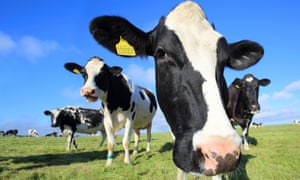
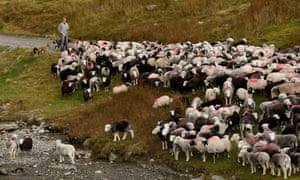






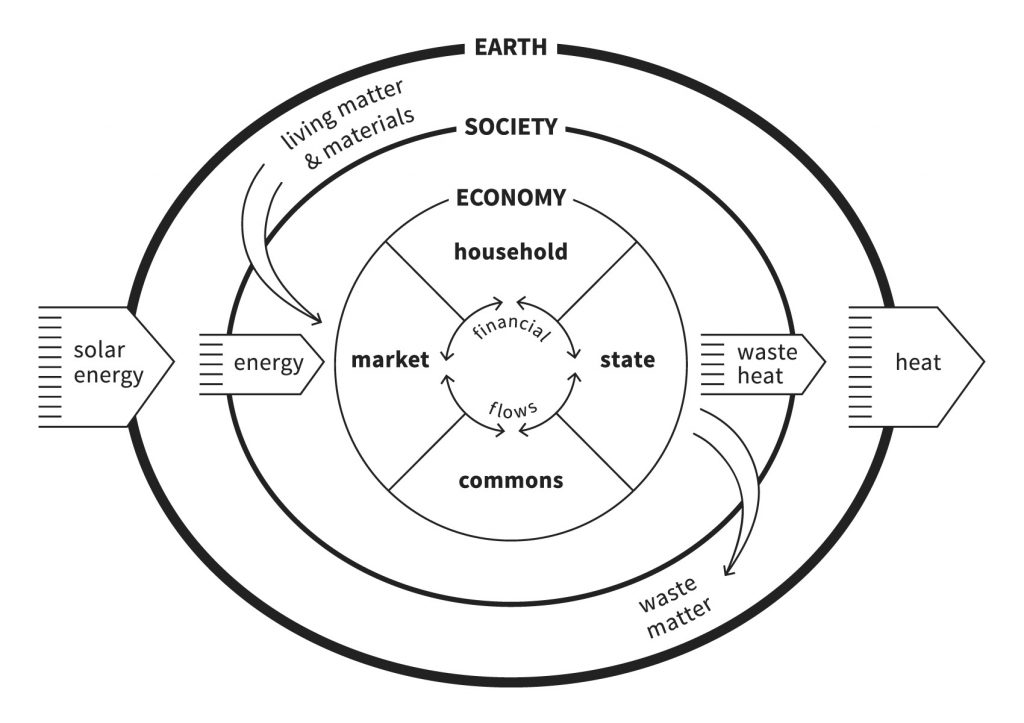
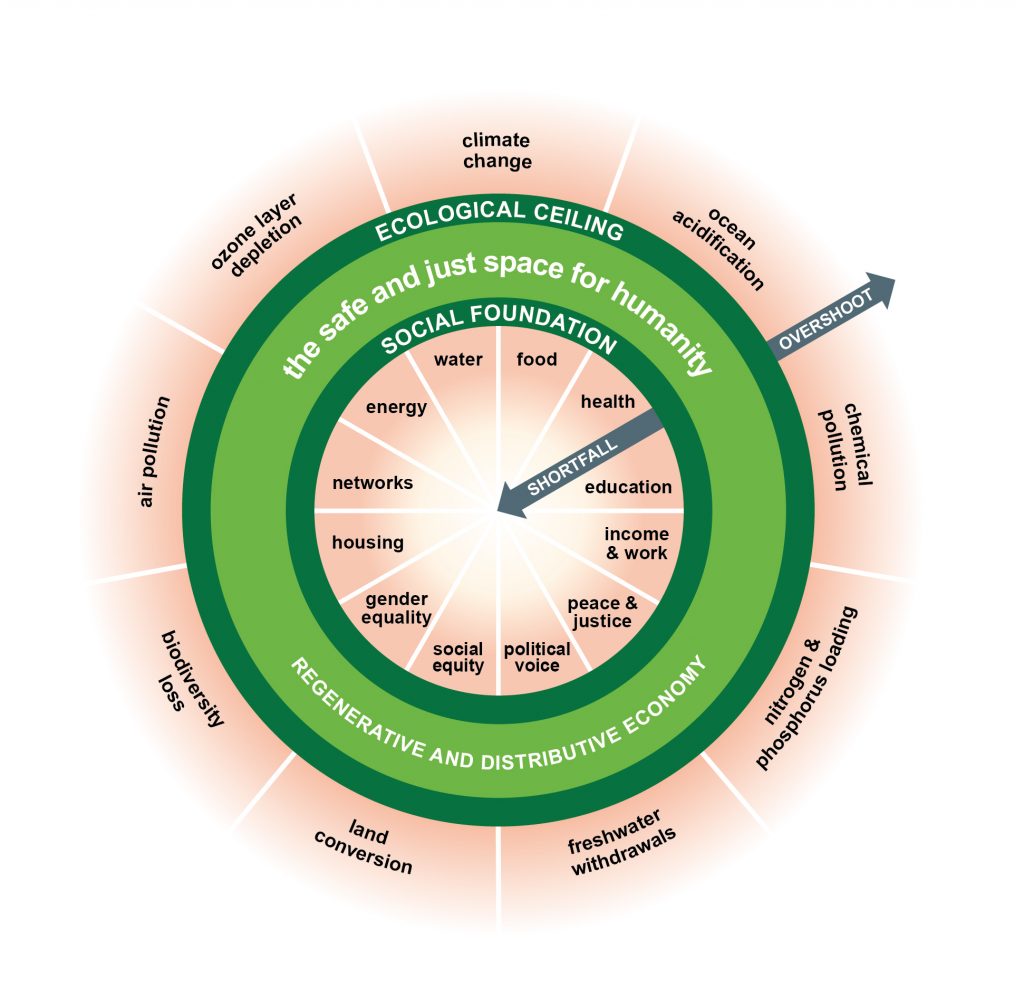
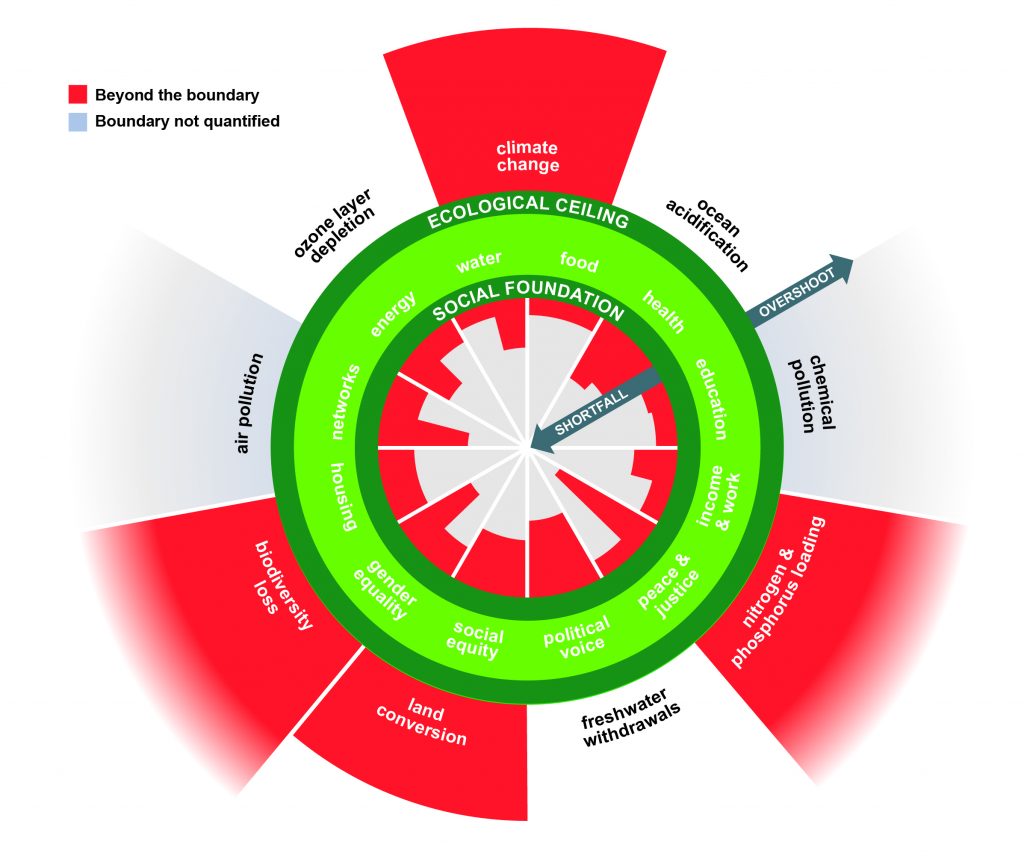

We are still living in the long 20th century. We are stuck with its redundant technologies: the internal combustion engine, thermal power plants, factory farms. We are stuck with its redundant politics: unfair electoral systems, their capture by funders and lobbyists, the failure to temper representation with real participation.
And we are stuck with its redundant economics: neoliberalism, and the Keynesianism still proposed by its opponents. While the latter system worked very well for 30 years or more, it is hard to see how it can take us through this century, not least because the growth it seeks to sustain smacks headlong into the environmental crisis.
Sustained economic growth on a planet that is not growing means crashing through environmental limits: this is what we are witnessing, worldwide, today. A recent paper in Nature puts our current chances of keeping global heating to less than 1.5C at just 1%, and less than 2C at only 5%. Why? Because while the carbon intensity of economic activity is expected to decline by 1.9% a year, global per capita GDP is expected to grow by 1.8%. Almost all investment in renewables and efficiency is cancelled out. The index that was supposed to measure our prosperity, instead measures our progress towards ruin.
But the great rupture that began in 2008 offers a chance to change all this. The challenge now is to ensure that the new political movements threatening established power in Britain and elsewhere create the space not for old ideas (such as 20th-century Keynesianism) but for a new politics, built on new economic and social foundations.
There may be a case for one last hurrah for the old model: a technological shift that resembles the second world war’s military Keynesianism. In 1941 the US turned the entire civilian economy around on a dime: within months, car manufacturers were producing planes, tanks and ammunition. A determined government could do something similar in response to climate breakdown: a sudden transformation, replacing our fossil economy. But having effected such a conversion, it should, I believe, then begin the switch to a different economic model.
[pullquote align=”left”]Land value tax and community right to buy help to create what I call a politics of belonging [/pullquote]
The new approach could start with the idea of private sufficiency and public luxury. There is not enough physical or environmental space for everyone to enjoy private luxury: if everyone in London acquired a tennis court, a swimming pool, a garden and a private art collection, the city would cover England. Private luxury shuts down space, creating deprivation. But magnificent public amenities – wonderful parks and playgrounds, public sports centres and swimming pools, galleries, allotments and public transport networks – create more space for everyone at a fraction of the cost.
Wherever possible, such assets should be owned and managed by neither state nor market, but by communities, in the form of commons. A commons in its true form is a non-capitalist system in which a resource is controlled in perpetuity by a community for the shared and equal benefit of its members. A possible model is the commons transition plan commissioned by the Flemish city of Ghent.
Land value taxation also has transformative potential. It can keep the income currently siphoned out of our pockets in the form of rent – then out of the country and into tax havens – within our hands. It can reduce land values, bringing down house prices. While local and national government should use some of the money to fund public services, the residue can be returned to communities.
Couple this with a community right to buy, which enables communities to use this money to acquire their own land, with local commons trusts that possess powers to assemble building sites, and with a new right for prospective buyers and tenants to plan their own estates, and exciting things begin to happen. This could be a formula for meeting housing need, delivering public luxury and greatly enhancing the sense of community, self-reliance and taking back control. It helps to create what I call the politics of belonging.
But it doesn’t stop there. The rents accruing to commons trusts could be used to create a local version of the citizens’ wealth funds (modelled on the sovereign wealth funds in Alaska and Norway) proposed by Angela Cummine and Stewart Lansley. The gain from such funds could be distributed in the form of a local basic income.
And the money the government still invests? To the greatest extent possible, I believe it should be controlled by participatory budgeting. In the Brazilian city of Porto Alegre, the infrastructure budget is allocated by the people: around 50,000 citizens typically participate. The results – better water, sanitation, health, schools and nurseries – have been so spectacular that large numbers of people now lobby the city council to raise their taxes. When you control the budget, you can see the point of public investment.
In countries such as the UK, we could not only adopt this model, but extend it beyond the local infrastructure budget to other forms of local and even national spending. The principle of subsidiarity – devolving powers to the smallest political unit that can reasonably discharge them – makes such wider democratic control more feasible.
All this would be framed within a system such as Kate Raworth’s doughnut economics, which instead of seeking to maximise growth sets a lower threshold of wellbeing, below which no one should fall, and an upper threshold of environmental limits that economic life should not transgress. A participatory economics could be accompanied by participatory politics, involving radical devolution and a fine-grained democratic control over the decisions affecting our lives.
Who could lead this global shift? It could be the UK Labour party. It is actively seeking new ideas. It knows that the bigger the change it offers, the greater the commitment of the volunteers on which its insurgency relies: the “big organising” model that transformed Labour’s fortunes at the last election requires a big political offer.
Could Labour be the party that brings the long 20th century to an end? I believe, despite its Keynesian heritage, it could. Now, more than at any other time in the past few decades, it has a chance to change the world.